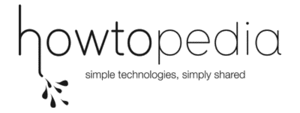Content repositories: Difference between revisions
(moving relevant section to content network) |
m (Content repository moved to Content repositories: plural. not the content network) |
(No difference)
| |
Revision as of 00:47, 9 January 2008
| Philosophy |
| Creating Content |
| Curating Content |
| Educational ideas |
| Activity ideas |
| Software ideas |
| Hardware ideas |
| Help Translating |
| Library |
| Content network |
| Repositories |
| Collections |
| modify |
By distributing laptops and school servers with learning materials on them, and a global index of content that can be used with no modification on the laptops, OLPC is developing a network of digital libraries and collections in a number of languages.
(see also: content ideas, sharing your content with OLPC, and content rating).
Potential materials
for a breakdown with size estimates, see Content repository/sizes
TV & Radio
Audio and videocasts
News
Books and texts
|
Interactive courseware
Wikipedia & sister projects
 Web and blogs
Mail, chat, file transfers
|
Daily updates
Repository mirrors
We will have regional mirrors in every country and region where OLPC is distributed en masse.
Materials to be included in the mirrors include:
- a full Fedora repository
- developoment tools used by OLPC subteams in constructing builds
- cross-compilation toolchains used by various contributors
- a Free content repository
- Wikipedia snapshots [2-20GB], archive.org & gutenberg texts [2-100GB]
- Wikimedia Commons [1M resources, ~1TB]
- Other media resources (Jamendo, archive.org; size TBD)
- Collections made specifically for OLPC
- A collection sized for the XO
- Local collections sized for the XO and for school servers, developed in-country
- Collections sized for school servers (larger sets of data, maps, video, texts, and software)
- Software suitable for OLPC schools
- Packages for FC7 school servers
- Extensions and additions for existing tools and services in the OLPC network
Mirror sites
In general, the Internet Archive is considering launching local and regional mirrors of their collections. We will want a larger mirror that can host a dozen TB of data for each region, connected to multiple peers; and a number of smaller mirrors in each country. Details on potential mirror hosts:
South America:
- Brasil -- Google, AMD. See also Rodrigo M.
- Uruguay -- Google and GMail
Africa
- Nigeria --
- Ethiopia --
Asia
- Nepal -- see OLPC Nepal
- Taiwan?
Large archives
- Free media collections : Flickr, Wikimedia Commons
- Music : Freesound, Free Music Project
- Texts: Project Gutenberg, Google Scholar, Wikipedia;
- Stories: ICDL, other children's pdfs
- Language: WiktionaryZ / OmegaWiki, Dicologos and Universal dictionary system
- Reference collections: the Humanity Development Library, eGranary
Small subsets will need to be culled for pre-installation of choice material on the laptops themselves; larger subsets will need curating to pick out material suitable for the laptop's audiences; classification and categorization; and checks to avoid unbalance or repetition. Most content needs internationalization.
Specific projects and collections
- Avallain literacy and basic skills learning
- A World Digital Library portal
- Wikijunior, WikiHow
- Our Stories project, with Story Corps, UNICEF, and Google - capturing local stories
- Book scanning and digitization:
- Children's picturebooks, with support from ICDL
- Public domain materials, with archival support from the Internet Archive
- Other local cultural materials, with support from the World Digital Library
- Wikieducator tutorials
- OER subcollections from Curriki and OER Commons
- Health collections from EOW, WHO, and others